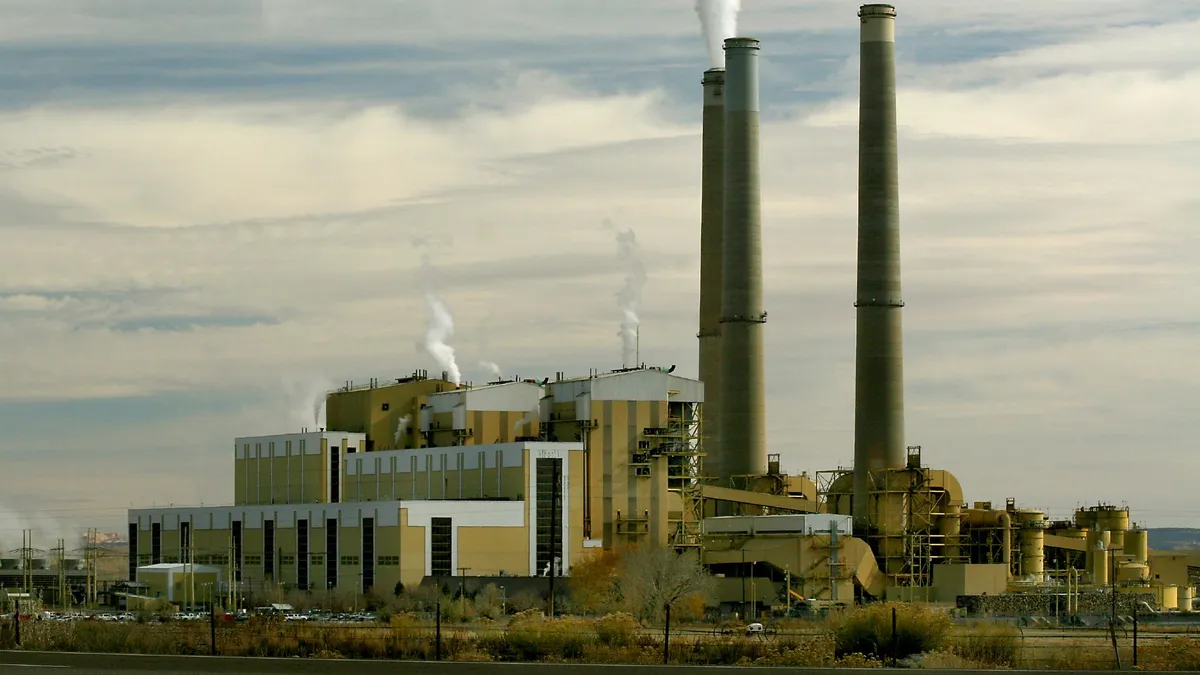Dive Brief:
- On the heels of an analysis that questioned the economics of its coal fleet, PacifiCorp has delayed its Integrated Resource Plan four months while it incorporates the new data into its planning process.
- Utility officials announced the delay last week, in advance of a monthly planning meeting. They say incorporating the new coal economics analysis alongside reliability models is a complex task that has set the IRP back months.
- PacifiCorp made headlines last month when it revealed the results of a unit-by-unit comparison of its coal fleet, with many prices appearing higher than alternative replacement power options beyond 2022, including renewables. But the utility says the raw comparison doesn't take into account reliability and system planning, and cautioned that no decisions have been made yet.
Dive Insight:
A straight ahead comparison of PacifiCorp's coal plants, versus the cost of cleaner replacement power, might lead some to believe that the utility is preparing to mothball plants en masse. That is not the case, Rick Link, director of structuring and pricing at PacifiCorp, told Utility Dive.
"PacifCorp did not say 60% of its coal fleet is uneconomic," Link said. He says the Sierra Club told that story and "it took on a life of its own." The study looked at the cost of running coal plants past 2022, and did find potential opportunities for savings, particularly in wind power. But the top-line numbers that made headlines may have given the wrong impression.
"When we ran our studies on this, it most definitely did not say the coal units were uneconomic," Link said.
But the study did give the utility a lot of data to ponder, and hence the need for a delay in the IRP process. "The coal studies are really an initial step in this IRP," said Link.
The schedule had called for filing the utility's IRP with regulators in multiple states on April 1, but that has been pushed back to August. The IRP process comes around every two years, and Link said PacifiCorp is almost ready to select a preferred portfolio and action plan.
"We haven't even gotten to that phase yet; the coal studies are an initial input," said Link.
The utility's critics, however, see things a bit differently. To Sierra Club Senior Strategy and Technical Advisor Jeremy Fisher, the delay is indicative of PacifiCorp's previous reticence to accept reality.
"They've avoided having a conversation about whether or not their coal plants were economic, since at least 2013. Prior to this IRP process I think it's something PacifiCorp wanted to avoid as a topic," Fisher said.
And it's not just the IRP delay. Fisher points to errors in the data presented at the December meeting, as a sign PacifiCorp hadn't given this much thought before.
"PacifiCorp hasn't spent time in the past on what it means to retire their coal plants, and they're being caught off guard by simple errors," said Fisher, pointing to an instance of fixed costs being presented in the wrong units as an example.
Link attributes some of the issues to the data being "preliminary and incomplete" when it was presented. "There were a whole host of things we needed to resolve," he said.
At the IRP planning meeting last week, Link said the focus was on "progress we've made on shoring up reliability studies." He added that the utility's goal is to be "open and transparent," and that public comment and feedback are "a key element."
From the Sierra Club's perspective, Fisher said it is obvious the utility is serious about the effort to bring more clean energy into its mix.
"Pacificorp is taking a closer and harder look, in overall a pretty healthy way," said Fisher. "It's taken [the company] a while to catch up on this, but I think they're really starting to dig into coal retirements in a way we haven't seen from them in the past, looking at reliability implications, and what happens as they start taking additional coal offline."
But as for the results PacifiCorp's coal study, Fisher is unambiguous. "Most of its coal plants could — and should — be retired and replaced with lower cost and cleaner energy," he said.















